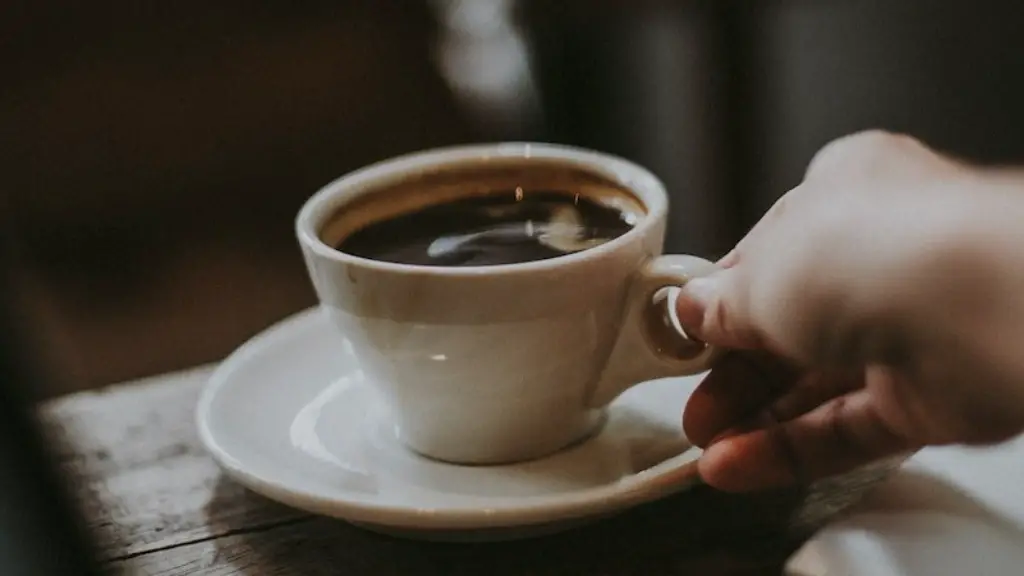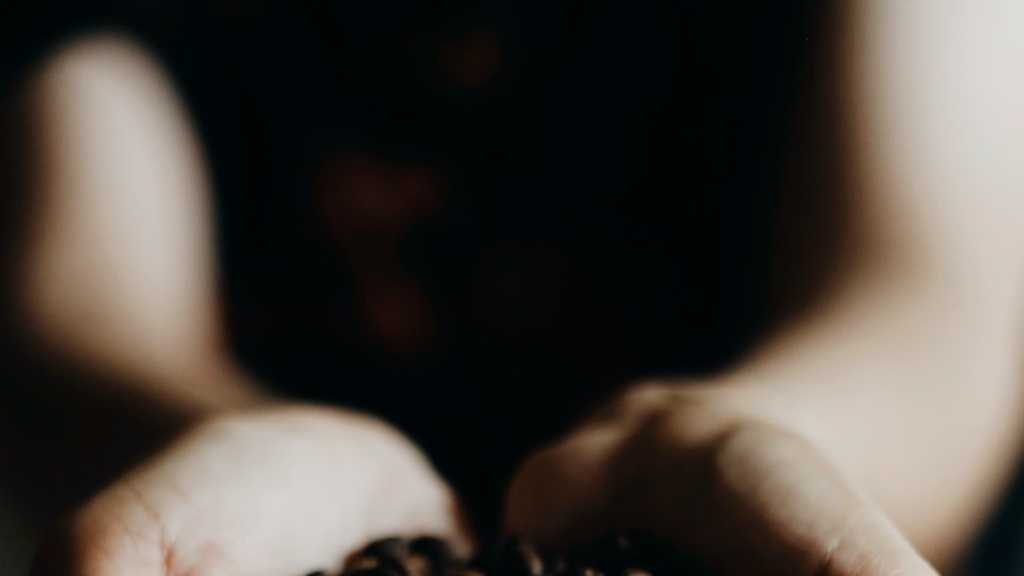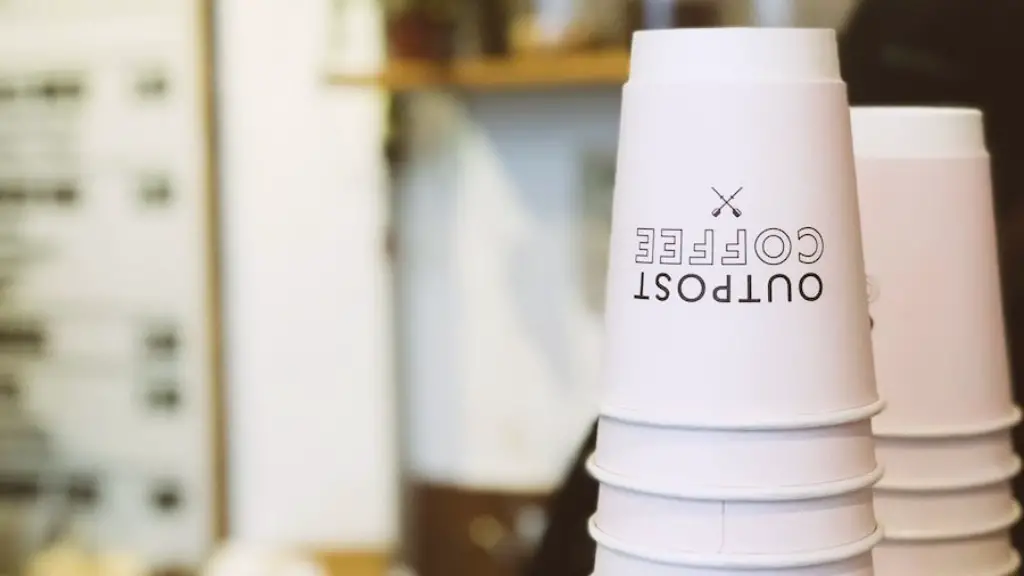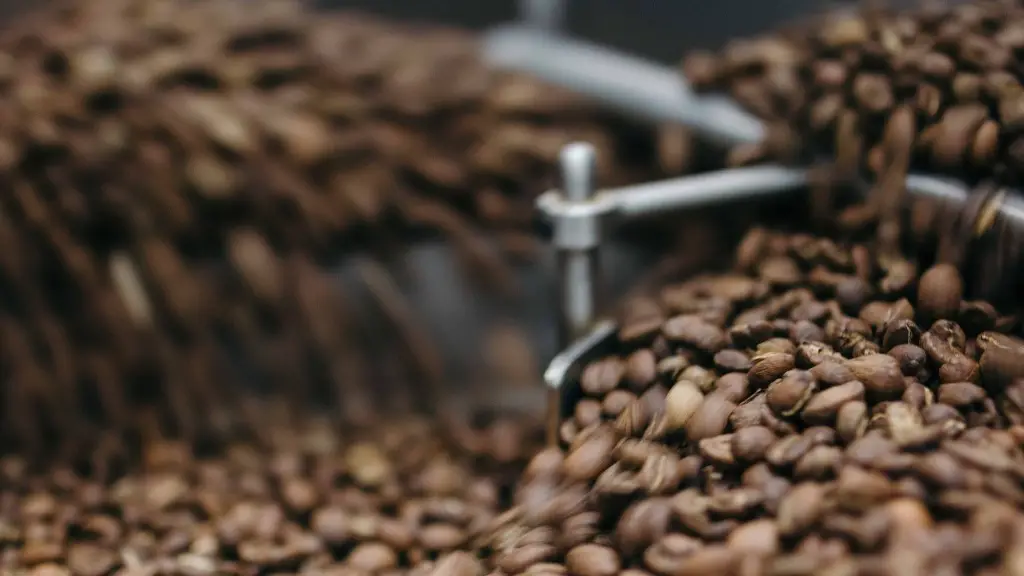Intermittent fasting has grown increasingly popular in recent years as a tool for weight loss and overall health improvement. But, it can be difficult to figure out which foods and drinks are appropriate for each stage of a fasting plan. One common source of confusion is whether coffee can be drunk during a fast. Some research suggests that it can, while others caution against it. Here, we will discuss the pros and cons of drinking coffee while intermittently fasting.
At its most basic, intermittent fasting is giving up all food and beverages, except water, for a period of 12 – 18 hours every day. During this time, it is important to focus on getting enough hydration and sticking to the fast plan. The effectiveness of intermittent fasting for weight loss is widely accepted, and drinking coffee during a fast can potentially help boost metabolism. One study published in the Annals of Internal Medicine suggests that coffee has thermogenic properties, which can help increase fat loss. However, coffee typically contains caffeine, which has been linked to increased levels of stress and accumulation of toxins in the body.
Coffee also has diuretic effects, meaning it can make you urinate more and may result in dehydration. While the effects are usually mild, it is important to keep in mind that dehydration can lead to a decrease in the body’s ability to absorb nutrients, and decrease the effectiveness of a fast. As such, it is important to consider the risks of drinking coffee while fasting.
Experts have varying opinions on this subject, but some suggest that a moderate level of caffeine consumption is okay while fasting. Nutritionists recommend consuming coffee with minimal to no added sugar, cream, and other additives to get the most out of it. An alternative to drinking coffee is to take caffeine pills, which may provide the same thermogenic benefits without the risk of dehydration.
While the jury may still be out on whether it is okay to drink coffee during a fast, it is important to be mindful of how it affects you. Keep an eye on your hydration and energy levels, as well as any cravings that come up. Ultimately, being mindful of the amount and quality of what you consume will ensure that your fasting plan is optimally effective.
Choice of Coffee
When choosing the right coffee to drink during a fast, it is important to note that the quality of the coffee can have a drastic effect on its nutritional benefits. For example, some research has shown that organic coffees can have greater antioxidant content than non-organic coffees. Additionally, a study published in the journal Science suggests that selecting a medium to dark roast can provide greater health benefits than a light roast. So, choosing the right type of coffee can make a difference in how much you get out of your fasting plan.
When deciding whether to drink coffee during a fast, it is important to consider the potential benefits and risks. Coffee does contain several antioxidants, and its caffeine can provide a slight boost to metabolism. However, it can also increase the risk of dehydration and lead to an accumulation of toxins in the body. So, it is important to weigh the pros and cons of drinking coffee while fasting and choose what works best for you.
Coffee Substitutes
While water is the best beverage to drink while fasting, some research suggests that herbal teas may provide a similar energy boost to coffee. Additionally, making a “bulletproof” coffee with MCT oil, grass-fed butter, and protein can be an alternative to coffee, providing a boost of energy with less of a risk for dehydration. It is important to note, however, that it is typically not recommended to substitute meals with these drinks.
Herbal teas and “bulletproof” coffee can be consumed during a fast to potentially provide energy with less risk. However, when consuming them, it is important to be mindful of their calorie, sugar, and caffeine content, as they can still affect the body’s physiological response. Additionally, it is important to note that these beverages should not replace meals, as they will not provide the same nutritional benefits.
Verdict on Coffee
In general, drinking coffee while fasting can offer some potential benefits. Its thermogenic properties can help increase fat loss, and its antioxidants can provide some health benefits. However, it is important to note that the caffeine can also increase the risk of dehydration, so it is important to be mindful of one’s hydration and energy levels. Additionally, drinking coffee with additives such as dairy, sugar, and cream can cause further disruptions to a fast, as these foods can interfere with digestion.
Ultimately, when considering whether to drink coffee while fasting, one must take into account how their own body responds to the beverage. If the individual experiences significant energy fluctuations and dehydration symptoms when drinking coffee, it is best to avoid it and consume water instead. However, if done properly, coffee can provide some slight benefits to your fast.
Timing of Coffee
Intermittent fasting periods typically involve 16 to 18 hours without food. For this reason, it is important to be mindful of when one consumes coffee, as it could potentially break the fast. One might choose to have coffee after the end of their fasting window, or they might also opt to have it during their feeding window. However, it is important to note that coffee has been found to blunt the body’s natural hunger hormone, leptin. As such, it is important to be mindful of when one consumes coffee, as it may affect how one eats during the feeding window.
The timing of one’s coffee consumption will depend on the individual’s needs and goals. If one is looking to lose weight, it might be best to have coffee during the fasting window, as it can help with thermogenesis. Alternatively, if one is looking to maintain their weight, they may opt to have coffee after the fasting window has ended, as leptin levels may be higher after the fast.
Alternatives to Coffee
When deciding whether to drink coffee while fasting, it is important to look at potential alternatives as well. Some researchers suggest that low-calorie, sugar-free beverages such as herbal teas and sparkling water can help break a fast without compromising weight loss goals. Additionally, some people may opt for calorie-free sweeteners to improve the taste of plain water. However, it is important to note that some sweeteners may be higher in calories than thought, so it is best to research before consuming.
Herbal teas and low-calorie sweeteners can provide a similar energy boost to coffee, but with less risk of dehydration. However, it is important to consider the calories and sugar content of these alternatives, as they can add up quickly. Additionally, it is important to be mindful of how they affect hunger levels, as they may have the same effects of blunting the body’s natural hunger hormone, leptin.
Awareness of Caffeine Intake
Due to the potential effects of caffeine on dehydration and hunger hormones, it is important to be mindful of one’s caffeine intake while fasting. Too much caffeine may cause dehydration, while too little may not yield the same thermogenic benefits. As such, nutritionists typically recommend consuming no more than 200-300mg of caffeine per day. Additionally, it is important to be aware of the sources of caffeine, as some types of coffee and teas may contain higher amounts than others.
One way to control caffeine intake is to measure the strength of one’s coffee by using a coffee scale. This can be especially helpful for those who are trying to stay within their caffeine limits. Additionally, some companies make lower-caffeine coffees for those looking for a slightly more alert energy boost with less risk. Ultimately, being mindful of caffeine intake is essential if one wants to reap the most benefits from their intermittent fasting plan.




